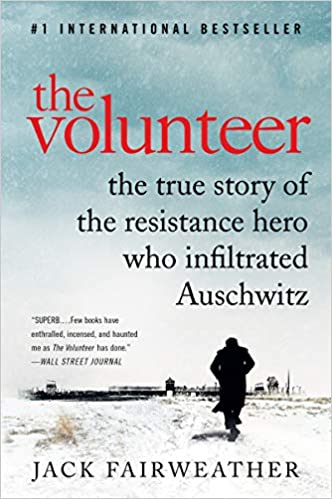In September 1940, the Polish soldier Witold Pilecki used faked identity documents to be arrested and sent to Auschwitz, which he planned to infiltrate and destroy from within. Boldly, Pilecki organized a resistance movement inside Auschwitz, hoping that one day friends from outside would liberate the camp. When no help from outside came, he decided to flee and inform the world of the atrocities inside.
He managed not only to flee but also to bring secret documents which he planned to use as proof, and even then he was not believed, as the stories seemed exaggerated. Pilecki begged the Allies to help liberate Auschwitz. They turned him away.
After the war, Stalin’s secret police arrested Pilecki for treason, tortured him, and finally executed him. He was 47. The Soviets worked hard to hide his story, to erase him from history. It wasn’t until the fall of the Soviet Union that the world learned of Pilecki’s heroism.
Norman Davies, a British historian, wrote: “If there was an Allied hero who deserved to be remembered and celebrated, this was a person with few peers.”
